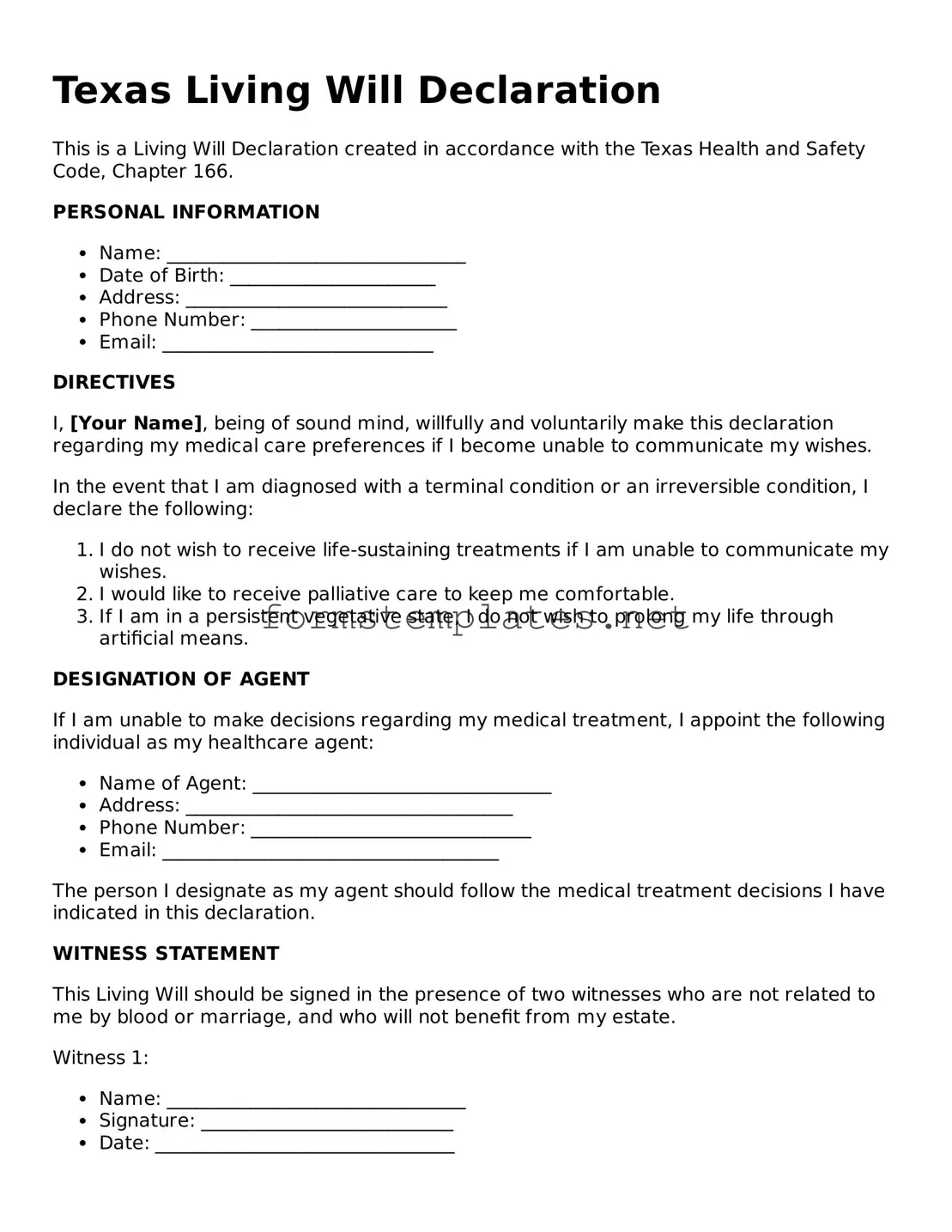Attorney-Approved Texas Living Will Template
A Texas Living Will form is a legal document that allows individuals to outline their preferences for medical treatment in the event they become unable to communicate their wishes. This form is designed to guide healthcare providers and loved ones in making decisions that align with the individual's values and desires. Understanding the components and significance of this document is essential for anyone considering their end-of-life care options.
Open Editor Now

Attorney-Approved Texas Living Will Template
Open Editor Now

Open Editor Now
or
⇓ PDF Form
Your form still needs attention
Finalize Living Will online — simple edits, saving, and download.